Podcast: Play in new window | Download | Embed
Alaska will now be a part of the oral histories that the U.S. Interior Secretary collected during her visit to Anchorage.
It was the tenth stop on her Road to Healing Tour to document the abuse Alaska Native children suffered at government boarding schools.
Secretary Deb Haaland told the gathering at the Alaska Native Heritage Center on Sunday that it’s important to hear from survivors and their families, to better understand how to end the cycle of trauma that has been passed down through the generations.
As Rhonda McBride from our flagship station KNBA reports, the Secretary heard from a Lingít elder from Sitka, who asked her to dig deeper.
“My Lingít name is Shaagunastaa.”
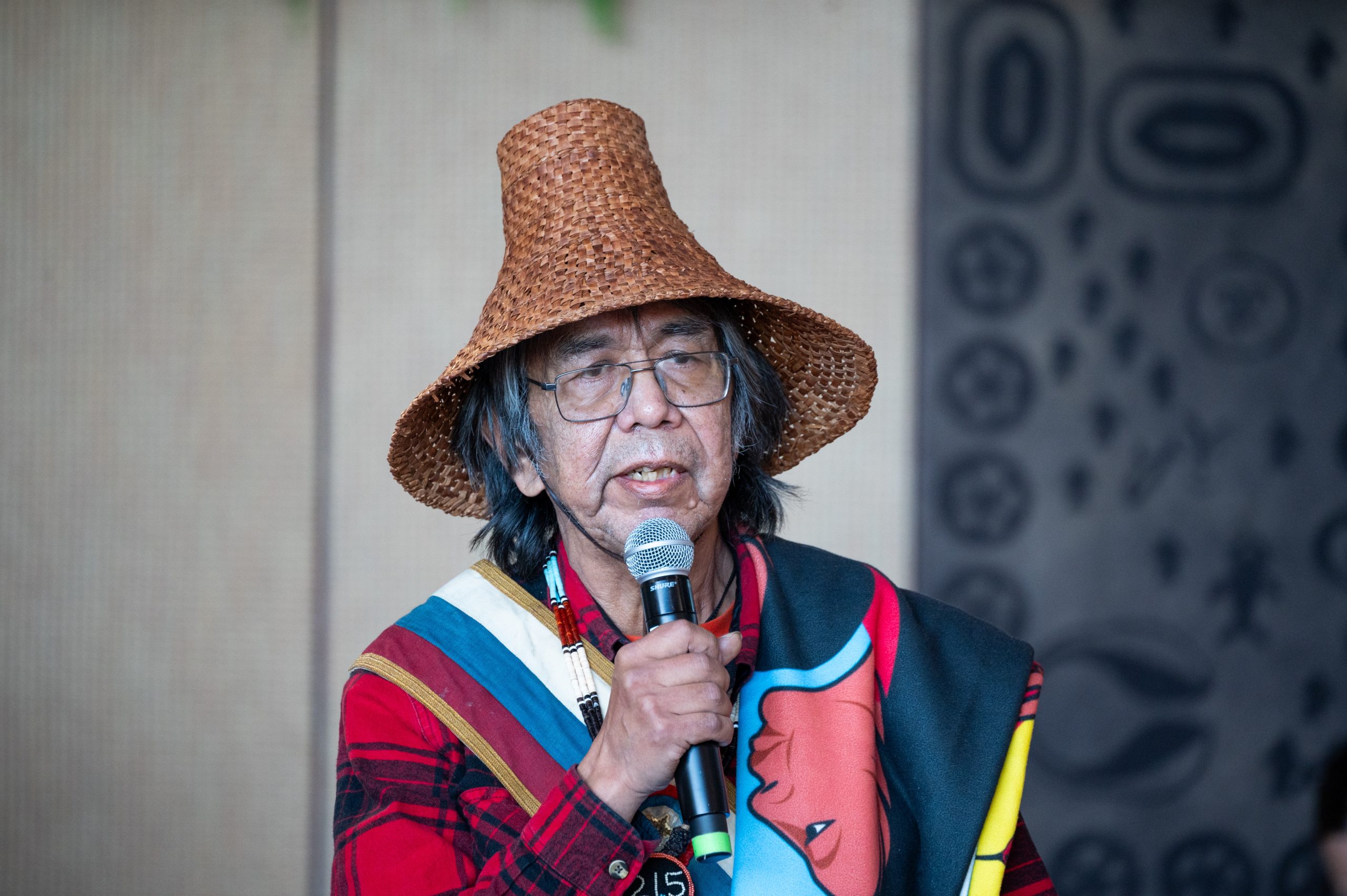
Bob Sam (Lingít from Sitka). (Photo: Matt Faubion / Alaska Public Media)
Bob Sam says that his Lingít name gives him an important responsibility. The words means the man….“who taught human beings to respect the dead.”
And out of respect for the dead, Bob Sam called for a full accounting of what happened to Alaska Native children, who were sent to schools out of state, where many died.
“Every single boarding school child that has died, their last thought was, “I want to come home.”
Sam says the remains of these children should be returned to their families, so they can heal.
He also says the Interior Department’s investigation needs to use a wider net – to include institutions like the Morningside Hospital in Portland, Ore.
Before statehood and into the early 1960’s, children with physical and intellectual disabilities were sent to the asylum. Many never returned. Some died.
“This gets even deeper. You know how Morningside was funded – the Department of Interior. “
Sam told the secretary there was also an orphanage called Baby Louise Haven in nearby Salem, where many Alaska Native babies died – also funded by the federal government.
“I think it’s critically important for us to know this history.”
Niesje Steinkruger, a former Fairbanks judge, came out of retirement to launch the Lost Alaskans Project.
She says knowing the history, helps to prevent the mistakes of the past.
That’s why she and other volunteer researchers have combed court records at the State Archives in Juneau to find out what happened to Alaskans who were sent to Morningside and Baby Louise Haven.
Steinkruger agrees with Bob Sam that families deserve answers.
“We know that there were at least 1,500 Alaskans that died at Morningside Hospital and never came home to Alaska.”
Steinkruger says these were mostly adults, both white and Alaska Native, but most of the children, based on archival photographs appear to be mostly Native.
She says one photo stands out – a picture of the children outdoors with hand-typed words in the left-hand corner that reads,
“Alaska defectives, happily in the mild climate at Morningside.”
Steinkruger says she also came across some disturbing correspondence between staff at Baby Louise Haven and the state of Alaska.
“I just remember this one letter asking about up to what age child they would take, and they said, well, the children had to be under four feet, because the enclosed cribs, as they call them, which is like a crib cage – a child could not be longer than four feet to fit in there.”
Steinkruger says, based on records of family names, most of the children at Baby Louise Haven were Alaska Native.
She says the government entities that took charge of these children have a responsibility to help their families.
“Bring the remains back to Alaska for their families.”
As for Bob Sam, he’s planning a trip to Portland to visit the graves of the children who died at Morningside. He says he will drink tea and talk to them–and sing songs in the Lingít language.
“Let’s be the best of who we are. And let’s bring our children home.”
And that says Bob Sam, is the first step on the road to healing.
- Dancers bless totem. (Photo: Matt Faubion / Alaska Public Media)
- (Photo: Matt Faubion / Alaska Public Media)
- Jim LaBelle and his wife Susan watch the totem pole raising. (Photo: Rhonda McBride)
- Alondra Sheakley and Alaina Thomas (Photo: Matt Faubion / Alaska Public Media)
Following the painful day of testimony in Anchorage on Native boarding school abuse, the gathering moved outdoors for a totem pole raising – the first in the nation to be dedicated to boarding school survivors and their families.
More than 500 people watched as the pole was positioned into place at the Alaska Native Heritage Center on Sunday.
At the base, a mother bear holds her cubs close. A father in human form sits above her, crowned by feathers from Raven’s tail, with Raven in a state of transformation. And at the top of the pole, nestled in Raven’s ear, are two children. A girl and a boy, gazing out towards the generations to come.
After hours of ceremony and preparations, it took only a few seconds for the pole to go up.
The pole was carved by two Haida brothers, Joe and T.J. Young.
Joe says it was an honor for them to work on the pole.
“If nothing, if it helps people feel more comfortable when they come by it, think or talk out loud, maybe it’ll help them out, knowing other people’s done the same thing, maybe it will help them out. At least get the conversations going with healing. That’s kinda what it’s for, is healing.”
The Young brothers spent three months carving the pole.

 In Oklahoma, the Inter-Tribal Council of Five Tribes has approved a resolution supporting the nomination of Sara Hill to serve as a federal judge.
In Oklahoma, the Inter-Tribal Council of Five Tribes has approved a resolution supporting the nomination of Sara Hill to serve as a federal judge.
Hill is a citizen of the Cherokee Nation and the tribe’s former attorney general.
Last week, President Joe Biden announced his intent to nominate Hill for the U.S. District Court for the Northern District of Oklahoma.
Get National Native News delivered to your inbox daily. Sign up for our newsletter today.




 Interior Secretary Deb Haaland (Laguna Pueblo) told the gathering her name in Keres is Crushed Turquoise.
Interior Secretary Deb Haaland (Laguna Pueblo) told the gathering her name in Keres is Crushed Turquoise.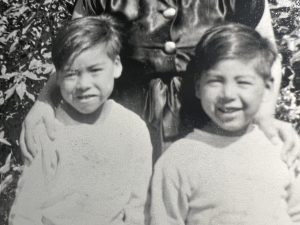
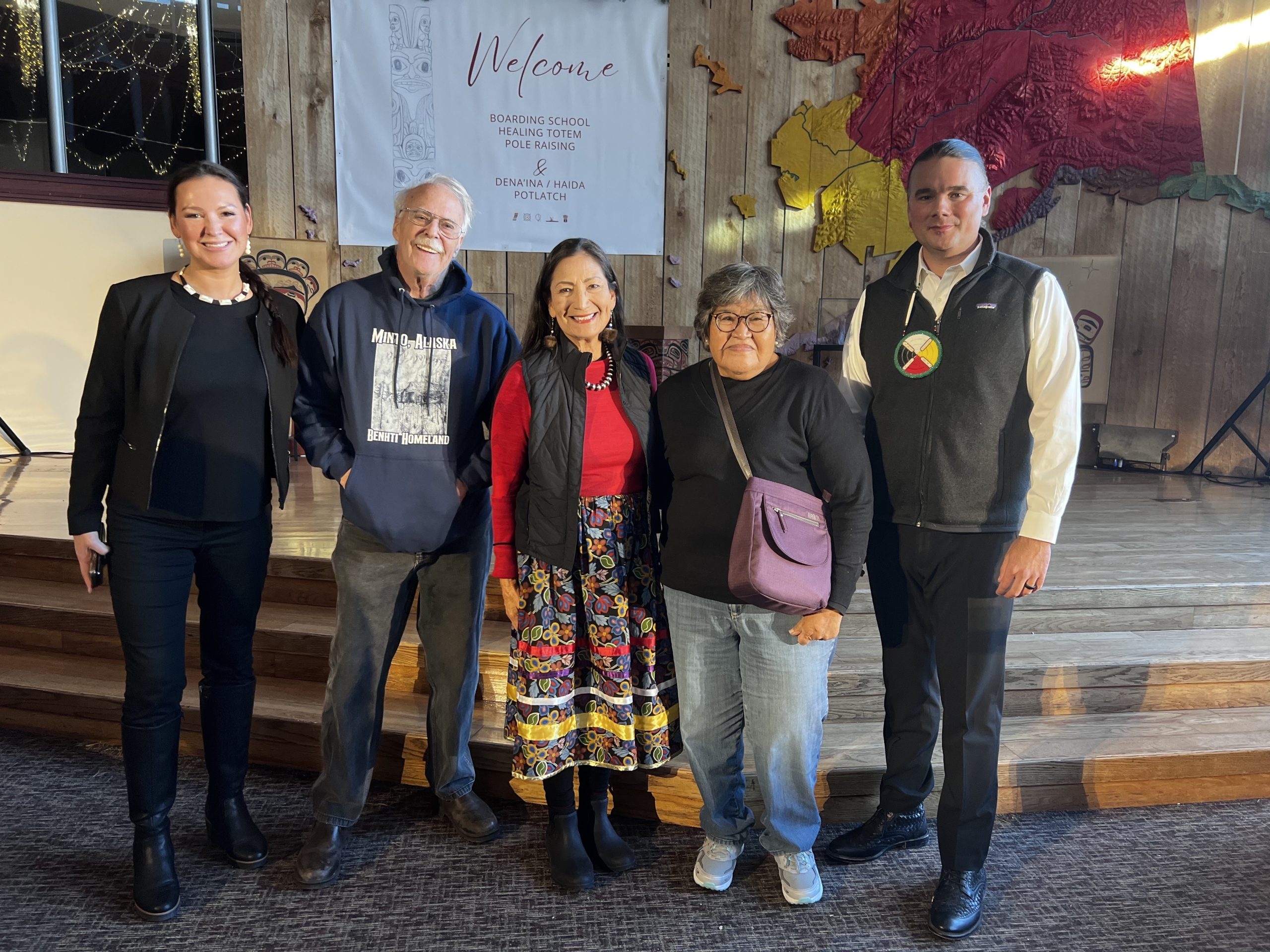



 Native American Bank has been chosen to administer $50 million in grants from the U.S. Treasury Department to bolster low-income Native American community projects and businesses in Plains states, including Montana.
Native American Bank has been chosen to administer $50 million in grants from the U.S. Treasury Department to bolster low-income Native American community projects and businesses in Plains states, including Montana. A Northern Wisconsin Tribe is in the middle of a major housing development project.
A Northern Wisconsin Tribe is in the middle of a major housing development project. Sec. Haaland has been traveling the country on what she calls a “Road to Healing Tour,” taking testimony on the boarding school era about the damage it caused.
Sec. Haaland has been traveling the country on what she calls a “Road to Healing Tour,” taking testimony on the boarding school era about the damage it caused.




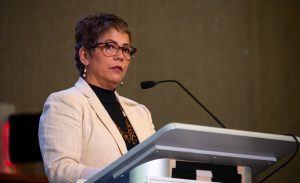



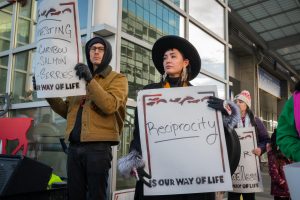
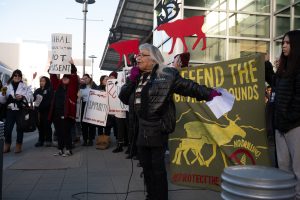
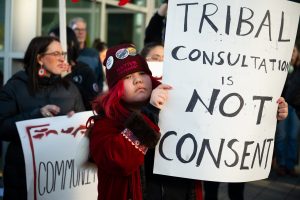
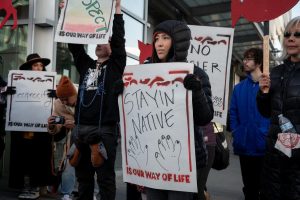


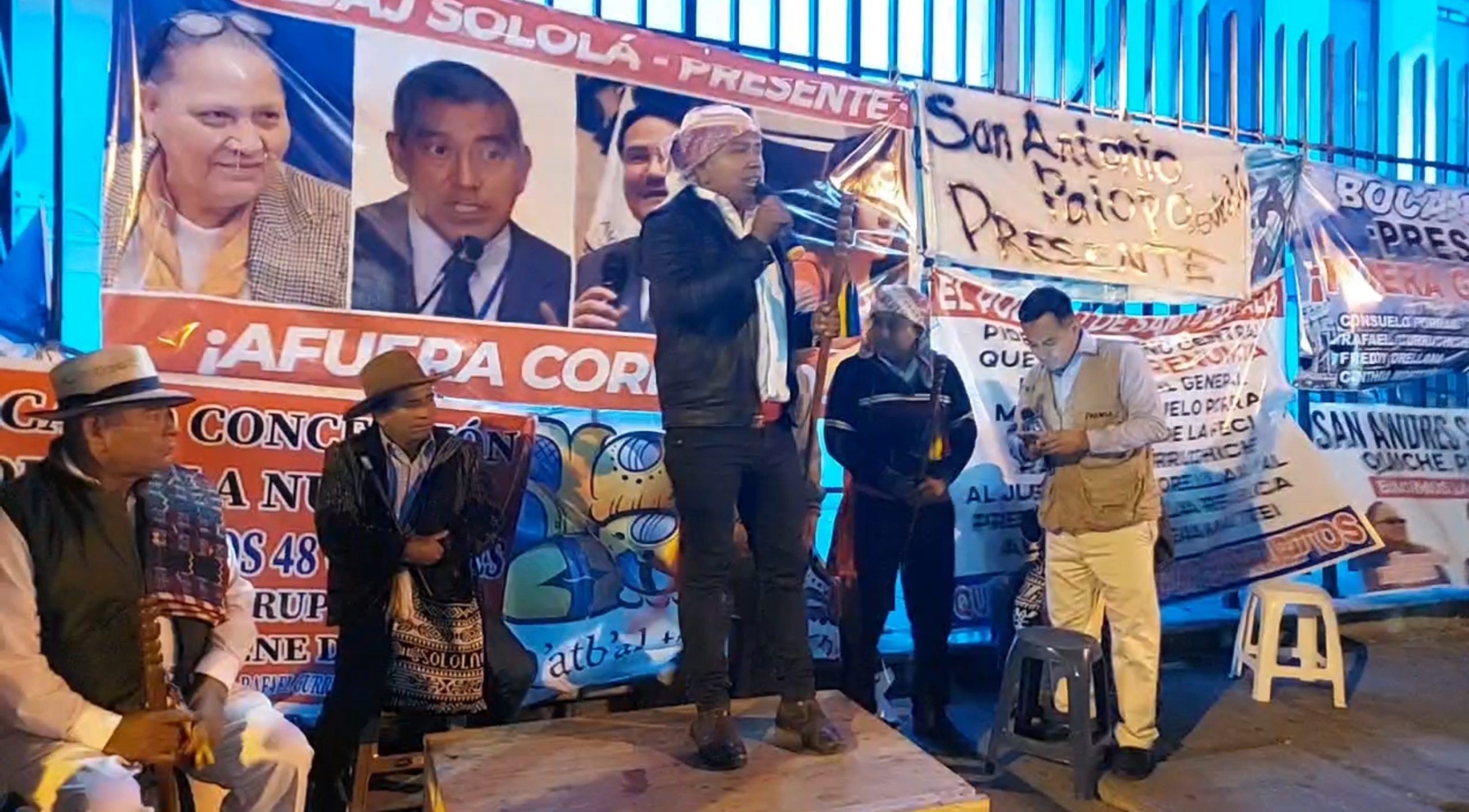 Guatemala’s three-week-old popular uprising, led by the country’s Indigenous citizens, is beginning to turn bloody.
Guatemala’s three-week-old popular uprising, led by the country’s Indigenous citizens, is beginning to turn bloody.

 Friday, you heard about the Pyramid Lake Paiute Tribe’s efforts to recover an endangered fish by modifying a 100-year-old diversion dam.
Friday, you heard about the Pyramid Lake Paiute Tribe’s efforts to recover an endangered fish by modifying a 100-year-old diversion dam.